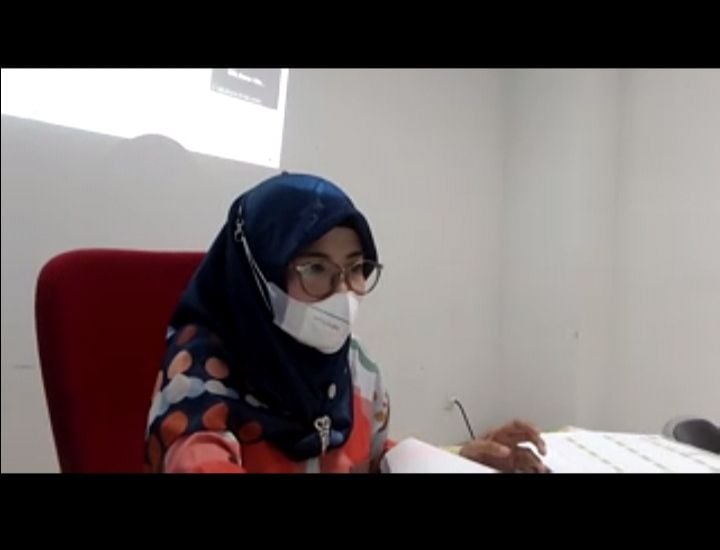
www.unesa.ac.id
Unesa.ac.id, SURABAYA – Each child needs adjustments in learning according to their individual barriers and needs. Likewise with children with special needs who require a special approach and communication. Therefore, the Department of Indonesian Language and Literature (JBSI) Faculty of Language and Arts (FBS) Surabaya State University (UNESA) held a hybrid guest lecture 'Indonesian Language for Children with Special Needs' on Monday, 23 May 2022.
The activity was attended by around 100 JBSI student participants batch 2021. This event is a forum for deepening material with experts in their fields, namely the Indonesian Language course for Children with Special Needs (BI-ABK) which is a mandatory course for all JBSI students.
The material raised is Verbal Behavior which is a form of approach for autistic children to find the function of language and VB-MAPP assessment which is a way to determine abilities and barriers in autistic children in designing suitable programs for autistic children.
As a resource person, Fitriya, S.Pd., owner of the Autistic Therapy Center or Children with Special Needs Autistic Children's Therapy (ACT) attended. He explained that verbal behavior is one way to work on new skills, especially language and social skills for children with autism.
Quoting Skinner, verbal behavior, Fitria continued, requires social interaction between speaker and listener. Speakers get reinforcement and control the environment through auditory behavior. In verbal behavior, expressive language skills are divided into four types of verbal; mand, tact, echoic and intraverbal.
Between verbal behavior and the VB-MAPP assessment are interrelated. To achieve the goal of solving verbal behavior problems, the VB-MAPP assessment is used as a form of detailed analysis before determining the best steps in dealing with children with autism.
"We must first know how autistic children can behave. This is in order to fulfill the goal of increasing prosocial behavior and reducing the value of problematic behavior, namely through a basic theory of why the behavior occurs and what factors influence it," he explained.
“In dealing with (educating, ed) children with special needs, apart from language skills and a special approach, it is also necessary to involve the heart and of course do it sincerely and sincerely. This is important because it can determine the learning and learning outcomes of children with special needs,” he said. [UNESA PR]
Author: Hiline
Editor: @zam*
Photo : Personal Documentation
Share It On:






